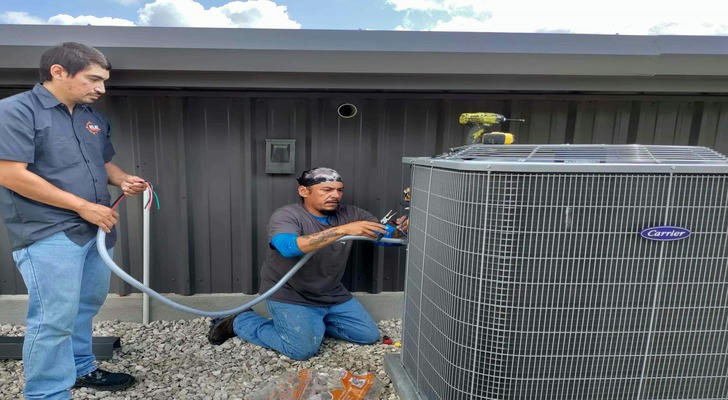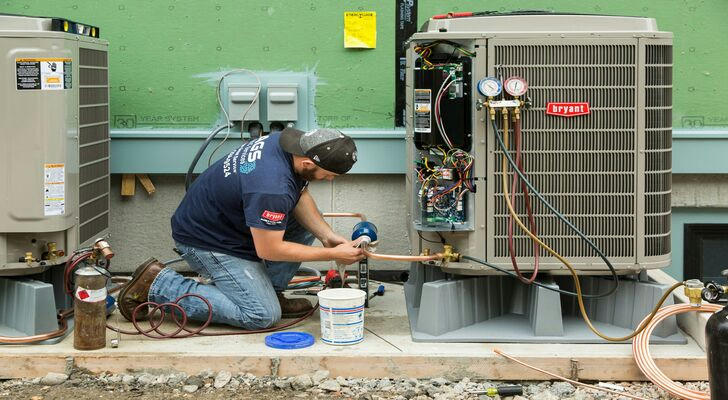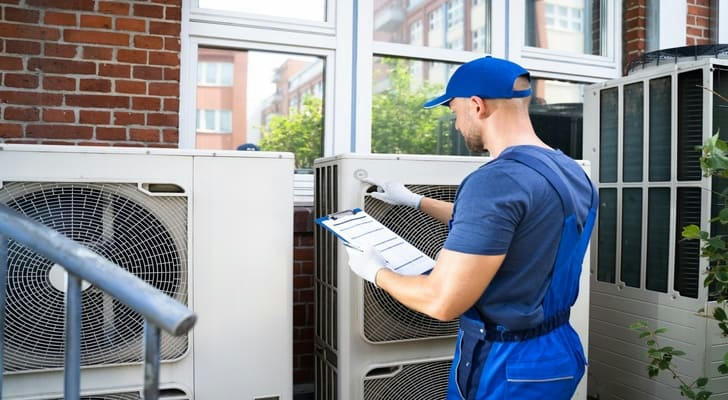Government-Supported HVAC Technician Training: Paid Training
If you are looking for a stable career with long-term income potential, government-supported Heating, Ventilation, and Air Conditioning (HVAC) training programs in the U.S. offer a "learn and earn" opportunity. Trainees can earn wages while gaining hands-on experience. Whether you are a recent graduate, a career changer, or currently unemployed, HVAC offers a path to a high-paying future for people of all ages.

Why Choose a Government-Supported HVAC Program?
1. High Demand and Long-Term Potential
The HVAC industry is one of the fastest-growing technical industries in the U.S. With increasing extreme weather, demand for energy-efficient technologies, and aging buildings, the need for HVAC technicians continues to grow across the country.
According to the U.S. Bureau of Labor Statistics (BLS), the HVAC industry is expected to grow at a faster-than-average rate. With tens of thousands of new positions opening each year, certified HVAC technicians are in high demand—especially amid a shortage of skilled workers.
2. High Income Potential 💰
High pay—HVAC apprentices typically start at $16 to $21 per hour, while the average hourly wage for HVAC technicians is $28. Experienced technicians can earn $60,000 to $80,000 per year, with some regions offering even higher salaries.
3. Job Security
With continued demand for HVAC professionals, job opportunities remain strong and stable.
4. Industry Certification 🎓
Earn EPA and other industry-recognized certifications to enhance your employability and salary potential.
What Government-Supported HVAC Programs Are Available?
Workforce Innovation and Opportunity Act (WIOA)
HVAC certificate programs at community colleges, technical schools, and trade schools typically last 6 to 12 months and cost between $1,200 and $15,000. Fortunately, government financial aid programs can help offset the cost of HVAC training. WIOA is a federally supported program designed to provide vocational training for low-income and unemployed individuals, including training in the HVAC field. Eligible participants may receive financial assistance to enroll in HVAC training programs and earn certification.
| School Name | Program Description | Funding |
|---|---|---|
| Long Island Technical Institute | Offers HVAC certification programs for licensing | WIOA program, students can receive tuition assistance |
| Northern Virginia Community College | HVAC installation and maintenance training | WIOA program, provide support for government programs |
| Los Angeles City College | Comprehensive HVAC system installation and repair | Provide federal scholarships, eligible students can apply |
| Claremont Lafayette Tech College | HVAC training and certification | Federal Student Loan Programs and WIOA supporting |
Apprenticeship Programs
Apprenticeships are often the most affordable option, combining paid on-the-job training with classroom instruction, usually lasting 3–5 years. Registration and tool costs typically range from $500 to $2,000. Many government-supported apprenticeship programs offer paid internships, allowing students to gain practical HVAC experience while learning professional courses. These programs are typically offered in collaboration between industry associations and employers and are an ideal way to gain HVAC skills.
Department of Veterans Affairs (VA) Training Programs
The U.S. Department of Veterans Affairs (VA) offers HVAC training supporting for veterans. Veterans can use the GI Bill or other VA-supported programs to attend government-supported HVAC courses and transition successfully into the workforce.

What Will You Learn in HVAC Training?
HVAC training combines classroom instruction and on-the-job experience. Content includes:
✅ HVAC System Installation – Learn how to install heating, air conditioning, and ventilation systems.
✅ Equipment Maintenance and Repair – Diagnose and repair common HVAC issues.
✅ Energy Efficiency and Environmental Regulations – Learn modern energy-saving technologies and compliance standards.
✅ Safety Procedures and Technical Skills – Master electrical components, refrigerant handling, and ventilation safety protocols.
Who Can Benefit?
Young Adults (18–30) 📨 – The HVAC industry has a low barrier to entry. With no need for long academic studies, students can learn while earning through government-supported training programs, quickly become certified, and start a high-paying career.
Career Changers (31–50) 🔧 – Ideal for those with limited income and career growth, such as workers with backgrounds in construction, manufacturing, or retail.
Older Adults (50+) 👨🔧 – Many experienced workers choose this field because there are no age limits, it requires less physical labor, and typically offers stable work conditions with higher income.
How to Apply for Government-supported HVAC Training
1️⃣ Find a program – Visit community colleges, technical schools, or official government websites to explore HVAC training options.
2️⃣ Meet basic requirements – Most programs require a high school diploma or GED and some basic math and science skills.
3️⃣ Submit your application – Prepare your resume and apply through local training centers or HVAC company websites.
4️⃣ Go through the selection process – Some programs may require an interview or assessment test to evaluate your readiness and motivation.
5️⃣ Start your training – Start earning while training, and gain valuable skills for a successful HVAC career.

Frequently Asked Questions (FAQ)
How long does it take to complete an HVAC program?
HVAC certificate programs typically take 6 months to 1 year, while associate degree programs take about 2 years. HVAC apprenticeships usually take 3 to 5 years.
How much does HVAC certification cost?
The cost depends on the type of certification (EPA, NATE, etc.) and application fees. EPA certification includes multiple sections, with each costing approximately $25 to $150. NATE offers various certifications at different prices.
Do I need a degree to work in HVAC?
While having a degree in HVAC or a related field can be helpful, it is not required. Many successful technicians enter the field through apprenticeships and certificate programs, which provide a quicker and more affordable path focused on hands-on skills.
Do certifications expire?
Once you obtain certification, you don’t need to retake the exam. The EPA 608 certificate does not expire.
Start Your HVAC Career Today!
Government-supported HVAC training is a great path to a high-paying, stable career. Whether you're new to the workforce or seeking a career change, the HVAC industry offers solid growth potential. Apply now and take the first step toward success!
